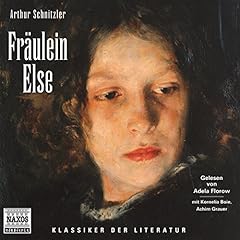
Bahnwärter Thiel
Artikel konnten nicht hinzugefügt werden
Leider können wir den Artikel nicht hinzufügen, da Ihr Warenkorb bereits seine Kapazität erreicht hat.
Der Titel konnte nicht zum Warenkorb hinzugefügt werden.
Bitte versuchen Sie es später noch einmal
Der Titel konnte nicht zum Merkzettel hinzugefügt werden.
Bitte versuchen Sie es später noch einmal
„Von Wunschzettel entfernen“ fehlgeschlagen.
Bitte versuchen Sie es später noch einmal
„Podcast folgen“ fehlgeschlagen
„Podcast nicht mehr folgen“ fehlgeschlagen
0,00 € im Probezeitraum
BEFRISTETES ANGEBOT
Nur 0,99 € pro Monat für die ersten 3 Monate
Das Angebot endet am 29. Januar 2026 23:59 Uhr. Es gelten die Audible Nutzungsbedingungen.
 Bist du Amazon Prime-Mitglied?
Bist du Amazon Prime-Mitglied?Audible 60 Tage kostenlos testen
Für die ersten drei Monate erhältst du die Audible-Mitgliedschaft für nur 0,99 € pro Monat.
Pro Monat bekommst du ein Guthaben für einen beliebigen Titel aus unserem gesamten Premium-Angebot. Dieser bleibt für immer in deiner Bibliothek.
Höre tausende enthaltene Hörbücher, Audible-Originale, Podcasts und vieles mehr.
Pausiere oder kündige dein Abo monatlich.
Aktiviere das kostenlose Probeabo mit der Option, monatlich flexibel zu pausieren oder zu kündigen.
Nach dem Probemonat bekommst du eine vielfältige Auswahl an Hörbüchern, Kinderhörspielen und Original Podcasts für 9,95 € pro Monat.
Wähle monatlich einen Titel aus dem Gesamtkatalog und behalte ihn.
Für 9,95 € kaufen
-
Gesprochen von:
-
Johannes Steck
-
Von:
-
Gerhart Hauptmann
Über diesen Titel
Naturalism has its origins in France, when Émile Zola started writing his Rougon Macquart series (20 novels, published between 1870 and 1893). Slowly naturalism found its way through Europe, also to German literarature, apparently.
Because this short novel by Gerhart Hauptmann is fully naturalistic. Which means you need a strong stomach for reading it. Zola considered himself to be an ‘apostle of truth’, and truth always appears to be ugly for the naturalists. And therefore for Hauptmann, or at least for his main character: Bahnwärter Thiel.
At the start of the novel the waiter loses his wife. The signalman stays alone with his son Tobias. But soon, and there the drama begins, Thiel decides to remarry - unless the doubt of the pastor; by the way, mainly because he needs someone to take care of his son. Later in the story, this fact will appear to be ironically tragic. But, I won’t spoil much more.
During his second marriage Thiel is haunted by memories and dreams of his first wife. He starts to dedicate his working place to her and tries to keep it free from influences from his second wife. After a while she becomes pregnant and Thiel gets a second son.
At the end of the novel all relational tension that intensifies slowly during the story, finds its way in some typical naturalistic scenes of violence.
The main difference berween realism and naturalism is the question they try to answer. Realism is occupied with the question: what is man? For the naturalists this question changed into: how did man became what he is?
This might be concerned as a possible hint, a guiding question, for a naturalistic reading of this story: How did Bahnwärter Thiel became what he is at the end of the novel?
Bahnwärter Thiel: a German naturalistic novel
Ein Fehler ist aufgetreten. Bitte versuche es in ein paar Minuten noch einmal.
Epochentypisch handelt es sich nicht um leichte Kost. Viele Themengebiete werden angeschnitten, z.B. der Einfluss und Stellenwert der Technik, Industrialisierung, Abhängigkeit, Misshandlung, Tod, Schuld und Wahnsinn. Insbesondere die Entwicklung Thiels wird sehr deutlich dargestellt. Interessant ist auch der Wechsel des Erzählers und des Erzähltempos, das unter anderem den naturalistischen Sekundenstil aufweist.
Das Werk ist literarisch bedeutsam, aber auch unglaublich düster. Aus diesem Grund ist es eher keine nette Unterhaltung für Zwischendurch und sollte - insbesondere als Schullektüre - sauber aufgearbeitet werden.
Bedeutsam und düster!
Ein Fehler ist aufgetreten. Bitte versuche es in ein paar Minuten noch einmal.



















